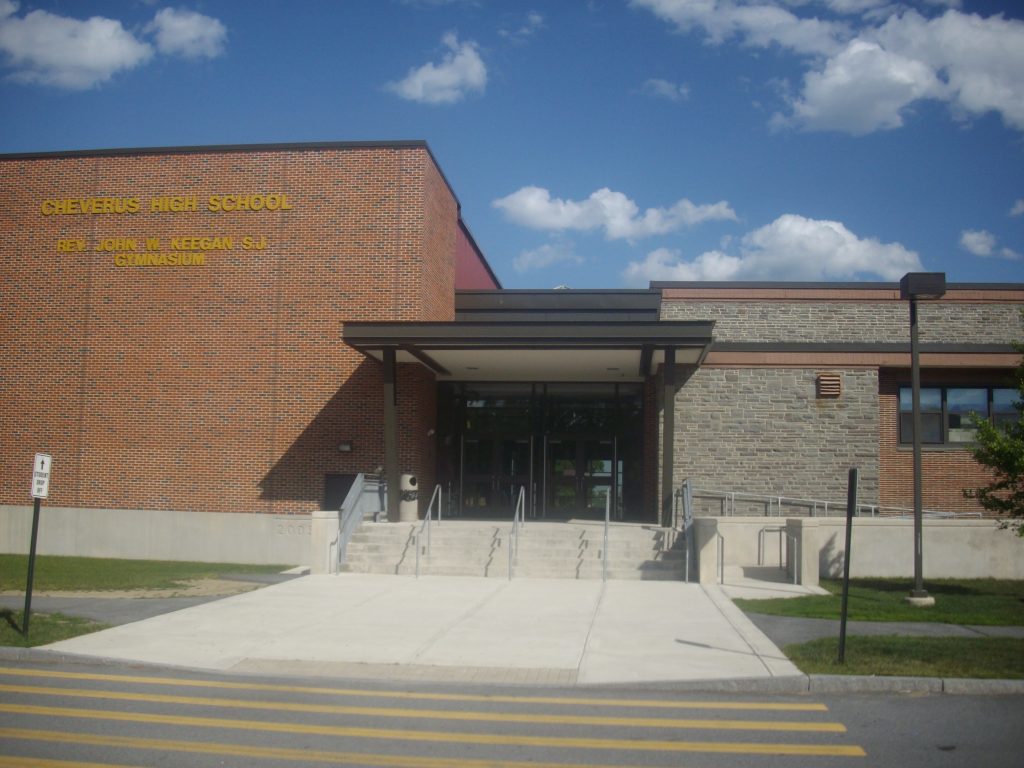Catholic School in Maine applies for funds after Supreme Court rules against ban on use of state dollars in religious school tuition.
Cheverus High School in Portland, Maine is cutting a new path for students and parents who would like to have some of their own tax dollars back to pay for a private, religious education.
Maine officials approved the first religious school application for public tuition funds from Cheverus in September.
A U.S. Supreme Court decision in June overturned Maine’s ban on the use of public funds at religious schools. So far, Cheverus, a Roman Catholic preparatory high school, is the only religious school in the state to apply for tuition funds.
Prior to the Supreme Court ruling in Carson v. Makin, Maine paid for some private schooling in the state’s less populated areas, where some school districts do not operate secondary schools. The districts would either send students to other public schools or to a private school the parents selected. But there was a caveat: government funds could only be used at schools that did not provide religious instruction.
Maine families opposed to the state’s discriminatory policy went to court arguing that by excluding religious institutions government officials were violating the First Amendments “free exercise clause.” The Supreme Court agreed.
“A neutral benefit program in which public funds flow to religious organizations through the independent choices of private benefit recipients does not offend the Establishment Clause,” wrote Chief Justice John Roberts in his opinion for the majority.
In addition, the First Amendment does not force states to limit state expenditures to secular institutions, said Roberts.
“Maine’s decision to continue excluding religious schools from its tuition assistance program … thus promotes stricter separation of church and state than the Federal Constitution requires,” wrote Roberts.
The decision in Carson does not require states to fund religious schools, said Marc LeBlond, director of policy at EdChoice, a nonprofit that supports school choice initiatives, in an interview.
“Basically, what the chief justice said is that there is no requirement that the government fund private schools, but he also said that if they do, they can’t discriminate,” said LeBlond. “But I’m wondering now how the Maine legislature is going to respond. Whenever you have decision of this magnitude, it is typically followed by some type of legislation.”
In a lengthy statement following the court ruling, Maine Attorney General Aaron Frey said he was “terribly disappointed and disheartened” by the decision. He also said any educational institutions that receive public funds “must comply with the anti-discrimination provisions of the Maine Human Rights Act, and this would require some religious schools to eliminate current discriminatory practices.”
Frey said he will confer with Maine Gov. Janet Mills and the legislature “to address the court’s decision and ensure that public money is not used to promote discrimination, intolerance, and bigotry.” But in the case before the high court, it was the government that was called out for discriminatory practices. In his opinion, Roberts said that Maine’s decision to exclude religious schools “effectively penalizes the free exercise of religion.”
In a statement on behalf of the Catholic League, a Catholic civil rights organization, Michael McDonald, the league’s communication director, described the ruling on behalf of Maine families as “a great victory for both religious liberty and school choice.”
“The Court makes clear that states cannot discriminate against a school for holding a religious viewpoint,” said McDonald. “If the state is going to subsidize school choice programs, they cannot neglect to support religious schools. This will ultimately help students, giving them more top-quality schools to choose from to avoid the failing public school systems.”
“We hope to see tuition move much more freely and we could possibly see new schools spring up,” said LeBlond. “Tuition dollars are not so bound anymore to the type of school from a constitutional perspective.”
School choice is gradually gaining momentum throughout the country thanks in part to Supreme Court rulings dating back to Zelman v. Simmons-Harris in 2002, when the justices upheld a school voucher program in Ohio, says LeBlond.
“Pennsylvania scored a big victory earlier this year in the form of expanded tax credit scholarships and in Arizona they are doing everything including education savings accounts, vouchers and charters,” LeBlond said. “All options should be on the table for empowering parents with the maximum range of educational choice and freedom.”
The Carson decision will allow funds in school choice programs to follow students, says Blond.
“We hope to see tuition move much more freely and we could possibly see new schools spring up,” said LeBlond. “Tuition dollars are not so bound anymore to the type of school from a constitutional perspective.”
In its mission statement, Cheverus describes itself as “an inclusive Jesuit Catholic college preparatory school” that “teaches students to be people for and with others to pursue intellectual, spiritual, physical and personal excellence for the greater glory of God.”
For more School Reform News.
